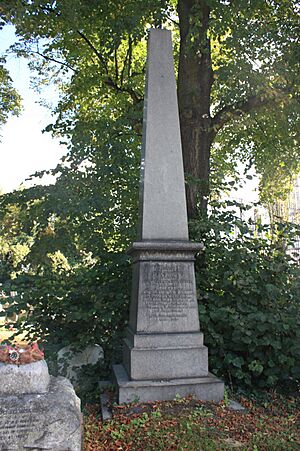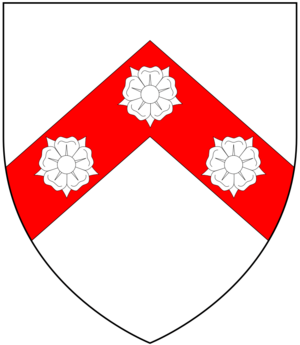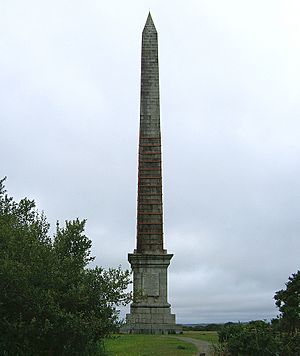Sir Walter Gilbert, 1st Baronet facts for kids
Quick facts for kids
Sir Walter Raleigh Gilbert
|
|
|---|---|
| Born | 18 March 1785 Bodmin |
| Died | 12 May 1853 (aged 68) Stevens' Hotel, Bond Street, London, England |
| Allegiance | British East India Company |
| Rank | General |
| Awards | Knight Grand Cross of the Order of the Bath |
Sir Walter Raleigh Gilbert (born March 18, 1785, died May 12, 1853) was an English army officer. He served in the British East India Company, which was a powerful trading company that also had its own army in India. He became a General and was known for his bravery and leadership.
Contents
Early Life and Military Start
Walter Raleigh Gilbert was born in Bodmin, a town in Cornwall, England. He was the third son of Reverend Edmund Gilbert. His family was connected to the famous explorer Sir Humphrey Gilbert. He was even named after Sir Walter Raleigh, another well-known historical figure.
In 1800, Walter joined the Bengal Infantry as a cadet. This was part of the British East India Company's army. He arrived in British India in October 1801. He quickly moved up the ranks, becoming a Lieutenant in 1803 and a Captain in 1810.
Key Battles and Achievements
Walter Gilbert took part in many important battles early in his career. He helped defeat enemy forces at Koil and Aligarh. He also fought in the battles of Delhi and Laswari. He even helped storm the city of Agra.
He caught the eye of his commander, Lord Lake. This was because of his courage in four attacks on Bharatpur. In 1814, he married Isabella Rose Ross in Calcutta. They had a son, Sir Francis Hastings Gilbert, 2nd Baronet, and a daughter, Geraldine.
Rising Through the Ranks
After these early successes, Walter Gilbert held several important positions. He was a Barrack-Master and a Cantonment Magistrate. He also commanded the Calcutta native militia. He then led the Ramgarh local battalion.
He continued to be promoted. He became a Major in 1820 and a Lieutenant-Colonel in 1824. By 1838, he was a Major-General. In 1851, he reached the high rank of Lieutenant-General.
Role in the Anglo-Sikh Wars
Walter Gilbert played a big part in the First Anglo-Sikh War. He commanded a division of Sir Hugh Gough's army. He fought bravely at the battles of Mudki and Ferozeshahr in December 1845. He also fought at the Sobraon in February 1846. His commander, Sir Hugh Gough, praised him for his actions.
After the war, he was honored with the title of Knight Commander of the Bath (KCB). He then commanded a division again in the Second Anglo-Sikh War. He fought in the 1849 battles of Chilianwala and Gujrat.
He led his division to pursue the remaining Sikh army. They crossed the Jhelum River and received the Sikhs' surrender in Rawalpindi in March. He also chased the Sikhs' Afghan allies all the way to the Khyber Pass. For his great service, he was made a Knight Grand Cross of the Bath (GCB) in June 1849. He also became a Baronet in 1850.
Later Life and Legacy
Sir Walter Raleigh Gilbert was known as a great soldier and also as a sportsman in British India. He captured the city of Peshawar in March 1849.
He passed away on May 12, 1853, in London. He is buried in Kensal Green Cemetery in London. After his death, a memorial was built in his honor on the Bodmin Beacon. His special title of Baronet ended when his son Francis died.
 | Janet Taylor Pickett |
 | Synthia Saint James |
 | Howardena Pindell |
 | Faith Ringgold |




